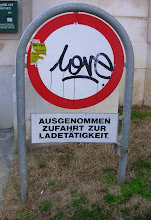Wednesday, September 26, 2007
Tuesday, September 18, 2007
Foucalt: The body of the condemned
Which is more humane: punishment of the body, or of the soul?
Once the horrific visualizations of the opening paragraphs began to fade from my mind, I was able to think clearly about this matter. Michel Foucault recounts execution scenes more terrifying than a Japanese horror film, yet in the end I think these public displays are less dehumanizing than the latter. Burning and quartering aside, the punishment for the crime results in a death that does not take months, or years detatched from society.
The descripton of the prison on page 6, known as the "House of young prisoners in Paris," is reminescent of a military camp. The prisoners wake early, pray, work, eat, ATTEND SCHOOL, PLAY, and then work and eat once again before bed. This doesn't sound half bad, compared to the brutal alternative. However, the execution methods improved and the guillotine was invented as a more humane and ethical alternative. The guillotine offered a swift, clean death. Modern-day electric chairs and lethal injections also promise similar results. Conversely, prisons have become meccas for gang violence, rape, and suicide (often the result of solitary confinement). Everyday you must battle both interior and external demons, building up a wall around you to survive. Being put through these conditions for possibly a life sentence, absent from the lives of those you care about seems a stricter punishment than death.
Once the horrific visualizations of the opening paragraphs began to fade from my mind, I was able to think clearly about this matter. Michel Foucault recounts execution scenes more terrifying than a Japanese horror film, yet in the end I think these public displays are less dehumanizing than the latter. Burning and quartering aside, the punishment for the crime results in a death that does not take months, or years detatched from society.
The descripton of the prison on page 6, known as the "House of young prisoners in Paris," is reminescent of a military camp. The prisoners wake early, pray, work, eat, ATTEND SCHOOL, PLAY, and then work and eat once again before bed. This doesn't sound half bad, compared to the brutal alternative. However, the execution methods improved and the guillotine was invented as a more humane and ethical alternative. The guillotine offered a swift, clean death. Modern-day electric chairs and lethal injections also promise similar results. Conversely, prisons have become meccas for gang violence, rape, and suicide (often the result of solitary confinement). Everyday you must battle both interior and external demons, building up a wall around you to survive. Being put through these conditions for possibly a life sentence, absent from the lives of those you care about seems a stricter punishment than death.
Rousseau's "A Discourse on Inequality" Part I
In Rousseau's response to "What is the origin of the inequality among men, and is it authorized by natural law?" he makes a case about the evolution of modern man from the earlier savage man, and how this has led to inequality in society.
Part I argues that men are different than animals because, while they both have the ability to form ideas, man can act freely upon them, whereas animals respond simply to instinct. Furthermore, unlike animals, man's mind can progress and evolve, which he calls "the faculty of self-improvement." This ability is also man's "source of all his misfortunes" (p 88) which in turn leads to the development of language and communication. With a greater understanding, men must grapple with love in both physical and moral states. This passion results in an "impetuous ardor which so often renders it fatal to men" (p 103). This leads us back to a question Rosseau states earlier, "whether the progress of their knowledge is an adequate compensation for the harm they do to each other"? (p 98).
Is a heightened understanding of our actions, though vain and horrible as they may be, an equal reward? By being able to weigh the magnitude and meaning of what we do and percieve, does that make it more fulfilling, and the action more valuable?
Also, would we be able to become one with nature once again, at this point in time?
Finally, here's something to think about: "I ask which - civilized or natural life – is the more liable to become unbearable to those who experience it?" (p 97).
Part I argues that men are different than animals because, while they both have the ability to form ideas, man can act freely upon them, whereas animals respond simply to instinct. Furthermore, unlike animals, man's mind can progress and evolve, which he calls "the faculty of self-improvement." This ability is also man's "source of all his misfortunes" (p 88) which in turn leads to the development of language and communication. With a greater understanding, men must grapple with love in both physical and moral states. This passion results in an "impetuous ardor which so often renders it fatal to men" (p 103). This leads us back to a question Rosseau states earlier, "whether the progress of their knowledge is an adequate compensation for the harm they do to each other"? (p 98).
Is a heightened understanding of our actions, though vain and horrible as they may be, an equal reward? By being able to weigh the magnitude and meaning of what we do and percieve, does that make it more fulfilling, and the action more valuable?
Also, would we be able to become one with nature once again, at this point in time?
Finally, here's something to think about: "I ask which - civilized or natural life – is the more liable to become unbearable to those who experience it?" (p 97).
Subscribe to:
Comments (Atom)
